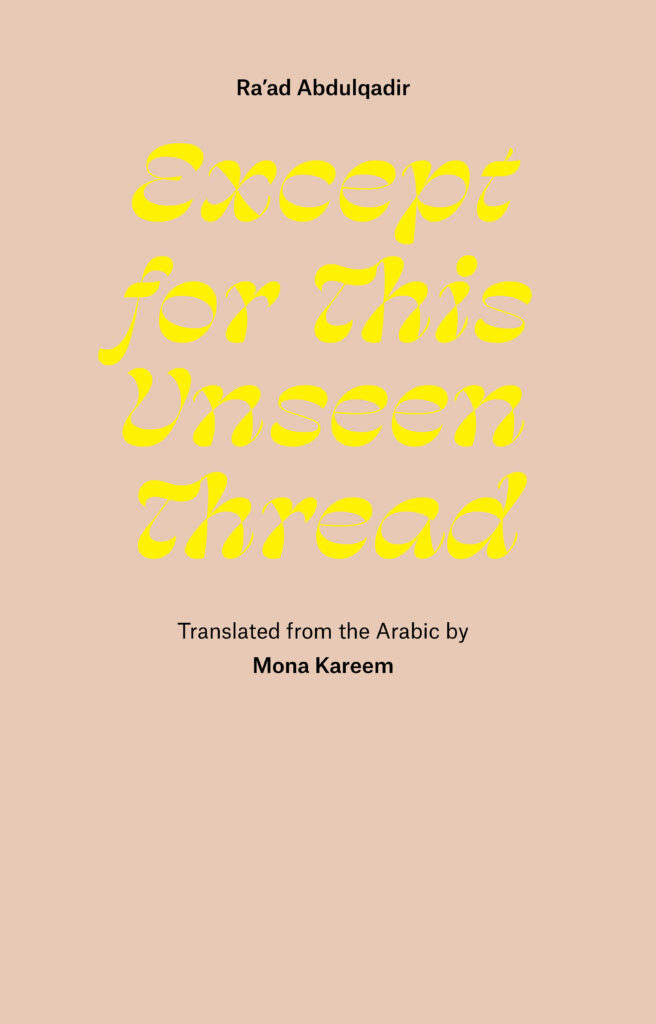What I love about the poetry of Ra’ad are the small details that become reference points to essential truths, as if they are atoms quietly and dynamically moving together in a simple yet profound meaning. The landscape of his poetry is fertile, so as soon as Abdulqadir skillfully sows a poetic seed, many questions emerge. Play is important in his poetry, but what’s particularly special about the game is that you can reassemble the parts differently every time, thus discovering new things by chance.
Dunya Mikhail
Ra’ad Abdulqadir’s Selected Poems consists of fragile, tender moments observed during life and death under sanctions and wars in Iraq. Ra’ad’s poetic language is spoken inside a glass coffin—it only speaks to the wind, snow, rain, clouds, butterflies, and stone birds. Mona Kareem beautifully channels Ra’ad’s glass language of refusal—her translation is an act of refusal against the destruction waged by nation-states.
Don Mee Choi
Ra’ad Abdulqadir was a poet's poet. A melancholic voice with a prophetic vision. Mona Kareem's excellent translation invites Anglophone readers to the world of this important Iraqi poet.
Sinan Antoon
Ra‘ad Abdulqadir’s poems are made from the simplest materials—the moon and clouds, bird bones and the bells of childhood, suitcases and tired feet—out of which they build a world as complex as our own, mired in suffering and suffused with hope. He alchemizes Iraq’s modern history into songs of innocence and experience. Mona Kareem’s translations don’t miss a note.
Robyn Creswell
Mona Kareem’s spellbinding translation, presented in a bilingual edition with the original Arabic, provides a welcome window into Ra’ad’s poetic world. Except for This Unseen Thread registers images both mythic and mundane in its “glass language,” pierced by light, wounded and glimmering.
Zack Anderson, Kenyon Review
